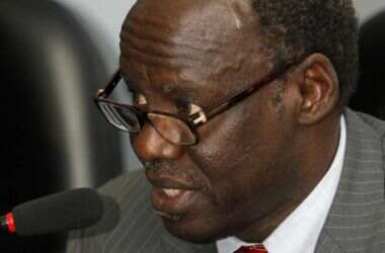S. Sudan’s opposition leaders reject unilateral elections
December 3, 2014 (JUBA) – Opposition leader from various political parties in South Sudanese have warned against any attempt to conduct unilateral and partial elections in the country before the ongoing conflict is comprehensively and peacefully settled.

“Our experiences of partial elections in Sudan are still fresh in our minds and were not by any standard pleasant. We should not repeat obvious mistakes”; it added.
The document, acknowledged by 13 member political party leaders, stressed that Constitution, the National Elections Act and its regulations were the legal framework required by the National Elections Commission to conduct electoral processes.
“We are not yet in possession of such a document and would like the Commission to enlighten us as to how it can embark on the election Calendar when such an important reference document is missing. For the sake of transparency and openness, the Regulations should be made available to the general public,” argued the party leaders.
They also questioned how the elections could be conducted while the population census, as stipulated in the country’s transitional constitution, was not yet conducted.
Article 194 of the Constitution clearly stipulates that “the national government shall during the transitional period conduct a population census the outcome of which shall, inter alia, determine the number of the electoral constituencies for the next general elections. No population census has yet been conducted, how will the Commission determine the number of electoral constituencies?”
They also cited section 38 of the National Elections Act, saying boundaries of various geographical constituencies have to be determined by the electoral body based on the publication of the results of each population census.
“No other method is contemplated”, stressed the party leader in their statement.
The group also proposed to the Commission to “use voter registration as the source for determining Geographical Electoral Constituencies has no basis in law”.
“It is not the business of the commission to look for data for the demarcation of the geographical constituencies. It should be provided with ready information by the executive branch of government. If that information does not come on time, especially when the Commission has alerted those concerned as early as July, then it should clearly point out the difficulty of conducting the elections on time”, the group argued
According to political party leaders, the priority at the moment and at any time should have been to bring about a negotiated peaceful settlement that will establish a comprehensive peace all over the country followed by reconciliation and healing among our divided people, then and only then, can a credible election be conducted.
“For sure, we are on the way of achieving a negotiated settlement through the IGAD led mediation. As you are aware, our country is and has been since mid-December 2013 in the grip of a bloody civil war that claimed the lives of tens of thousands of our citizens, displaced two million people, resulted in the destruction of public and individual properties and caused irreparable damage in the social fabric of our communities,” their statement reads.
It asked: “Can a situation in which the bullets are hissing vast territories of land are depopulated and potential candidates cannot cross tribal boundaries, for the ethnic nature the war has acquired, be conducive for democratic, peaceful and credible elections?
Tens of thousands have been killed and millions displaced since violence broke out in South Sudan nearly a year ago. Aid agencies have warned of famine in 2015 if fighting continues.
(ST)
